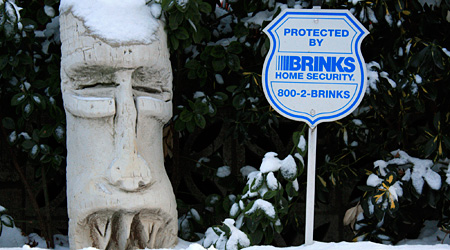How To Keep Your Homeowners Insurance Rates From Increasing

The cost of home insurance is measured by the premium rates that you will need to pay monthly or yearly. Your homeowners insurance rates are determined by how risky your home is to insure. If something happens that changes your risk level than your homeowners insurance `rates will go up. The more home insurance claims you file, the less safe the neighborhood you live in is, and your level of financial risk all factor into the average home insurance rates, and any change to these factors can cause an increase in your premium payment.
Too Many Small Claims Increase Homeowners Insurance Rates
Home insurance claims cost the company money, even if it doesn't pay any damages. A claim has to be viewed by an adjuster, paper work has to be filled out, and time must be spent reviewing each claim before making a final decision. These small costs add up, and if you file multiple small claims then your homeowners insurance rates will increase or your policy will be cancelled. To maintain the best rates for home insurance, think about self insuring on small claims by paying for the damages yourself. If the damage is only a $100 or so dollars more than the deductible you should consider making the repairs yourself, it could save your claim history with the insurance company and prevent your homeowners insurance rates from increasing.
Big Claims Effect Homeowners Insurance Rates
If your claim is a big one (for example, your house burned down) the effect on your homeowners insurance rate may depend upon how the event happened. Make sure you are diligent and take the proper precautions to make sure your home is safe. If you are responsible for a disaster that destroys your home, then your homeowners insurance rates will increase, and you will not get a good home insurance rate from your current company or any future companies!
Sweeping Home Insurance Rate Increases
Home insurance rates are based on how much of a risk each home presents. You can control much of your risk level by making sure your home is safe. However, your location can affect your home insurance rates in ways that you cannot control. Consider the following examples:
- Post Disaster Home Insurance Rates: The drain on insurance companies' claim reserves are enormous when there are several natural disasters in one year, and homeowners insurance rates will increase to limit company losses. There is nothing you can do to prevent this rate increase other than move to a location without any natural disasters.
- Frequent Claims in One Neighborhood: If the insurance company sees that your area has a high probability of incurring more claims because of frequent theft or vandalism, they have to increase the money in the pot to pay out more expected claims by increase homeowners insurance rates.
Your Credit Rating and Homeowners Insurance Rates
Insurance companies have long subscribed to the thought that credit is tied to increased risk, and so it impacts your homeowners insurance rates. The thought is that the lower the credit, the higher the likelihood that you will not take the proper care by paying to fix small damages before they turn into a large claim or paying to take the precautions to prevent the damage from happening in the first place. If you have recently had foreclosures, bankruptcies or judgments, you could find it hard to obtain a homeowners policy or find your present homeowners rates increasing.
Home insurance rate increases are usually avoidable if you are safe and make sure to limit the number of claims that you file. When you shop for a home insurance policy, ask the prospective companies what factors will cause a rate increase before you purchase a plan.







